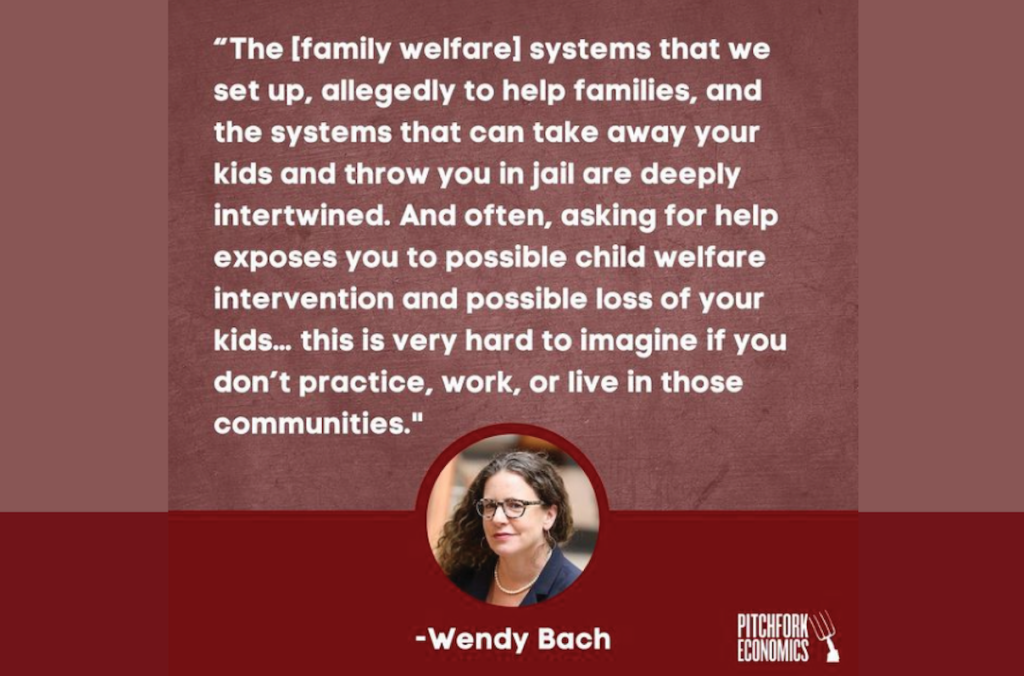With impoverished Americans routinely struggling to receive federal assistance to which they’re entitled, the United States government rarely offers solutions that make welfare easier to access.
But the recently introduced Child Tax Credit is proving to be the exception.
That’s the message from College of Law Professor Wendy Bach this month in conversations with podcast co-hosts Nick Hanauer and David Goldstein on their show “Pitchfork Economics.”
“When you apply for something like Section 8, or public housing, you’re going to have an in-person interview, you’re going to have work or volunteer requirements, you might be drug tested, you’re going to sign a consent form allowing them to see all kinds of records about you and your family,” said Bach, who teaches in the Legal Clinic and is an expert in poverty policy and the criminalization of poverty.
These barriers to assistance particularly impact impoverished Americans and serve as a means of discouraging, and even punishing, participation in a number of services.
“The United States is unique in that it really has three benefit systems that break down almost precisely by income level,” Bach said. “We have what I like to call welfare for the wealthy at the top, delivered mostly through tax expenditures and through the tax code.”
In the middle-income brackets “we have benefits across the board primarily for the elderly including Security and Medicare,” she said. “And then we have benefits at the bottom that are means-tested.”
However, the Child Tax Credit enacted by President Joe Biden as of July 15, is proving to be much more accessible for families of all incomes.
It provides tax relief in the form of monthly payments of $250 or $300 per child up to age 17. Parents who have filed tax returns for 2019 or 2020 or signed up to receive a stimulus check from the Internal Revenue Service, received the tax relief automatically.
“I would call the expanded Child Tax Credit really revolutionary in American social welfare policy, and the reason, simply, is universality,” Bach said.
Bach hopes that the automatic nature of the Child Tax Credit will inspire reformers to address future changes in a similar fashion, respecting individuals’ needs “to manage their own priorities and decide what they need to spend their money on.”
For the first time in a while, “I think we are making progress on this idea that base-level benefits can make a difference in people’s lives,” Bach said.
Listen to the episode in its entirety here.
